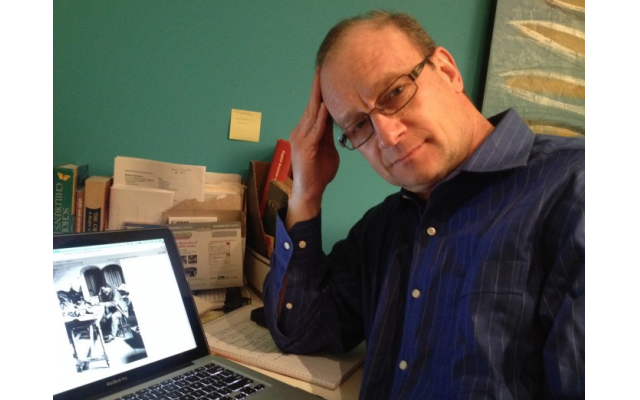Religious and Racial Roots of American Popular Music
The history of American popular music can be traced to the interaction of Jews and African-Americans.
Dave Schechter is a veteran journalist whose career includes writing and producing reports from Israel and elsewhere in the Middle East.
The Israeli journalist and author Yossi Klein Halevi says of the Jews, “We are a story we tell ourselves about who we think we are.”
Throughout the Bible there are admonitions such as in Deuteronomy 32:7, where it is written “Remember the days of old, consider the years of many generations.” As a people, Jews have a collective memory measured in the thousands of years, with oral and written accounts chronicling their history through countless generations.
African Americans have had no such fortune, their forebears having been violently separated from their homelands and, thus, their history. “Memory is part of the fabric that holds a community together,” said Rev. Dwight Andrews of First Congregational Church in downtown Atlanta. “So much of the experience of African Americans in this country was designed to destroy memory, to destroy any sense of identity, to destroy any sense of community.”
The blues as a musical genre was a response to what was lost. “The blues becomes an expression and an effort to make a space where there was no space, and to create a space in a world that only understood you as a slave,” Andrews said.
In addition to his flock at First Congregational, Andrews is also an acclaimed musician (saxophone, clarinet and flute), music educator (Emory University) and music director (for the Broadway productions of August Wilson’s plays, as well as the revival of “A Raisin in the Sun”).
The importance of memory was one aspect of a recent public conversation at the church about Jews, African Americans, and popular music, featuring Andrews and Ben Sidran, the multi-talented pianist, producer, lyricist, songwriter and author. “Without African Americans and Jews, there would be no popular music in America,” Sidran said.
As with his appearance at the Atlanta Jewish Music Festival in March, the basis for the discussion was Sidran’s book, “There Was a Fire: Jews, Music and the American Dream,” which jazz pianist Joe Alterman credits with helping motivate his decision last year to become AJMF director.
Andrews, Alterman and Leslie Gordon, director of the William Breman Jewish Heritage Museum, had talked for several months about arranging such an event, which drew an audience of about 250 people on a Thursday night. “This conversation, of blacks and Jews in America, to me is so important because it represents the best of this idea of caring for one another in America,” Sidran said.
In America, Jews and blacks shared a “commonality of being outsiders,” Sidran said. “When the Jews came to the United States, . . . they weren’t black, but they weren’t white, they were somewhere in between.”
American Jews associated the lynchings of blacks with the pogroms in the European lands they had left and, because of their constant search for a safe harbor, Jews identified with the African Americans’ “stranger in a strange land” status. “The Jews’ self-identity is bound up with the idea of being slaves in Egypt” and African Americans drew inspiration from the (perhaps apocryphal) story of the Hebrew slaves and their liberation, Sidran said.
The skills that Jews brought to the music business, as they did to other enterprises, were learned as outsiders in countries where their opportunities were circumscribed. Jews and African Americans became insiders in the music business. In this symbiotic relationship, each needed and benefited from the other, but not always in equal measure, notably as it came to payments received by musicians.
Sidran, 76, and Andrews, 68, despair about the form and lyrics of some of today’s popular music, the effects of technology on music creation and the industry, and the demise of music education in public schools. In the not-too-distant past, the latter was “part of your preparation as a citizen in an enlightened democracy,” Andrews said.
“The whole notion of community, listening to music as a community, as opposed to listening with our headsets, the way in which we privatize the experience of music and sound, I think also goes against this sense of community and of a shared experience,” Andrews said.
The evening’s fitting coda came from Sidran at the piano, performing his 2017 composition “I Might Be Wrong,” which included these first stanza lyrics:
I might be wrong but it sure seems to me
The past ain’t what it was
And the future ain’t what it used to be
Everywhere I go I hear people say
Man, you should have been here yesterday




comments